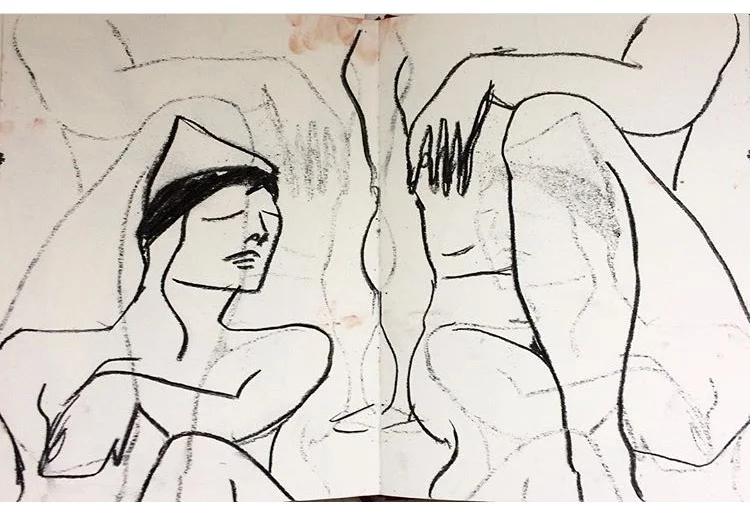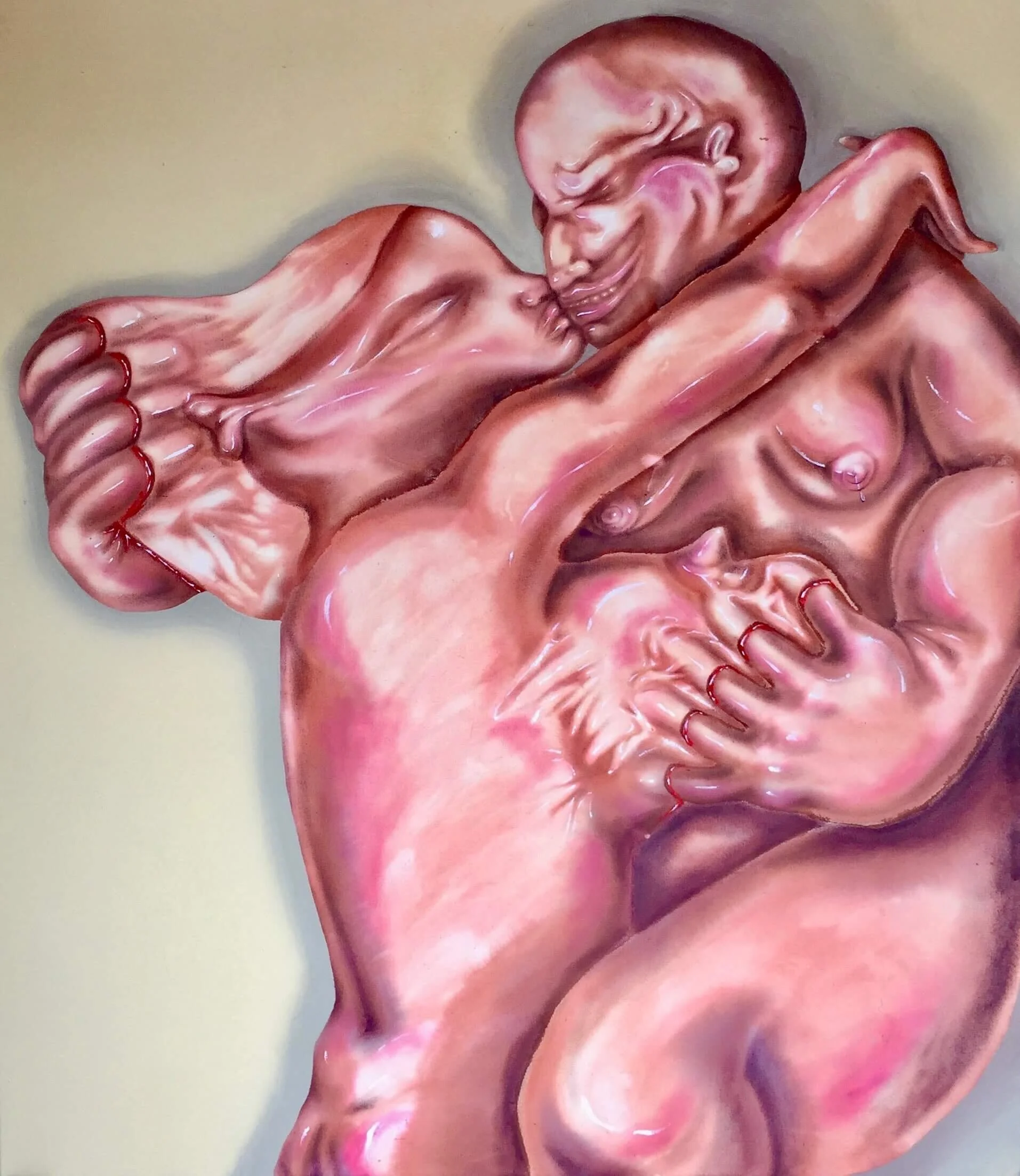Billie Eliot Turner
What inspires you?
I think, all art is incredibly personal, isn’t it? Everything we do as artists is a reflection of ourselves and how we perceive living, and recently I’ve been really thinking about what I want from life, and who I am. I’ve always been very comfortable in being a gay woman in this society, but recently I’ve been exploring nonspecific sexuality and thinking about the physicality on being not necessarily woman.
And why have you chosen to work with menstrual blood?
I’ve been trying to relate menstruation to the way we perceive the meat industry in looking at how feminism and veganism come hand in hand and the whole idea that one can’t be a feminist without being vegan, and vice versa. Feminism is all about the equality of everyone, and for me, nonhuman animals must be a part of that. A lot of things that happen in the meat industry support a gender inequality; in female (and male) animals that are nonhuman. I’ve been looking at the patterns and textures of raw meat and am really intrigued by what happens when you visually compare the human anatomy and its sexual potential with raw nonhuman meat, the sort you might see in a butcher’s or vacuum packed in a supermarket.
Your paintings are very beautiful, but also have this quite gory element, there’s something quite shocking about the images, and also the use of blood…
I really like that kind of thing, I mean the actual act of painting with blood, it is quite gory as a process. I say that not because I’m disgusted by menstruation but because I actively set up the space to be fairly unpleasant and work within it; I think that’s part of how the work comes to fruition, with the smell of old blood alongside the ambience of anguished music. I must make clear that I’m not trying to communicate that vaginas are grotesque, it’s about associating different aspects of feminism necessarily; the stigma towards menstrual blood and humangender issues with the way in which we as a society limitedly engage with non human issues within the meat industry. People are still ashamed of menstruationstill! Half the population can’t even talk about it. The way in which nonhuman species are cultivated is also a huge part of a societal shame. We don’t face our shameful activity and as a result there is suffering. And that must change.
What reactions have you been getting?
It’s really interesting actually, I haven’t really spoken to that many people about it. But when people ask, ‘oh so what kind of things do you do?’ and I say, ‘I’m painting with menstrual blood at the moment’ even people who menstruate are quite shocked. It’s not like they’re disgusted exactly, they just don’t quite know how to deal with it. I started thinking ‘if my mum caught me painting with blood, how would I feel, would I be embarrassed?’. I hope not.
So is your aim to shock?
What I want really is people to question themselves, I think that’s really important, to look at why we think in a certain way. I think in experiencing art it’s good to be made to feel uneasy, in order to then question ourselves in the reasons behind that uneasiness. I’d say I am a very liberal person, but I still occasionally find myself surprised by something someone is doing and then I think, hang on a minute, why am I being judgemental here? They’re cool, they’re happy, and they’re really into what they’re doing and that’s great. I want to open up that kind of dialogue within people and to encourage a greater acceptance and compassion amongst us.
Billie’s work will be exhibited in June at the Stour Space in London.
Images courtesy of Billie Eliot Turner
billieturner.co.uk
words GISELLE HYAM
What to read next









